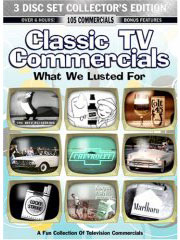
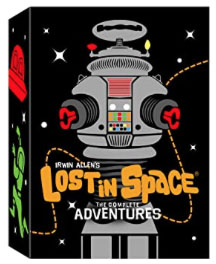
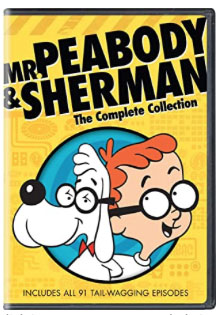

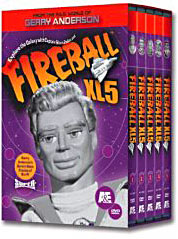
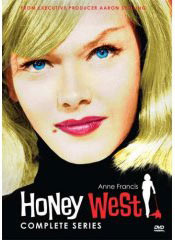
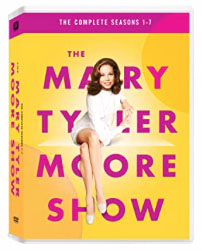
 |
 |
 |
 |
 |
 |
 |
||||||
TV Shows on DVD/ / / / / TV Blog/ / / / / Punk Book/ / / Holiday
Specials on DVD / /
/ /Classic
Commercials |
||||||||||||
by Billy Ingram
"I know he's dead, but can you tell me anything about him or the show?"
- Thanks,
Radio broadcaster Joe Pyne was the first outraged, outspoken, right-wing voice on national television, the father of modern conservative talk shows; blazing a path for Morton Downey, Jr., Wally George, Jerry Springer, Bill O'Reilly, Chris Matthews, Rush Limbaugh, Michael Savage and the rest. Never one to avoid controversy, Pyne claimed to keep a loaded gun in his desk drawer - and no wonder with the kooks he (or more accurately, the TV cameras) attracted. Joe developed his confrontational persona in 1949, when he discovered his audience on WILM Radio in Wilmington, Delaware got more excited when he raged on about local and national injustices. A companion TV program, the first Joe Pyne Show, debuted in 1954, broadcast locally on WDEL-TV, Channel 12. After a move to the West Coast in 1957, Pyne promptly made a name for himself in Riverside, CA when he busted up a high school drug ring on his radio program. Within weeks, this notoriety led to a local LA television program on KTLA.
He returned to Los Angeles when Metromedia offered him a local weekly slot and a nationally syndicated program in 1965. The ninety-minute syndicated gabfest was filmed at KTTV-11 (now FOX-11) studios, located in the recently defunct Metromedia Square. The Joe Pyne Show started airing on three stations, Saturday nights around 11:30pm. Within a year, 85 stations around the country (like channel 8 in Tulsa, OK, channel 8 in Richmond, VA and channel 48 in Philadelphia) signed up. His daily taped, syndicated radio program was heard in 254 markets and Pyne was also the number-one morning guy in LA in 1966, so popular he was allowed to broadcast the 6-10am program from his home. Viewer
Sonny Jackson remembers, "I was living in NE Oklahoma and picked
up the Tulsa channel that carried Joe Pyne. I had never heard of him or
his show when I turned on the TV late one Saturday night, for myself and
a couple of my friends visiting the house. I was a young 'un in high school. "As the picture came on, the screen was filled with a full head-shot of a bald guy with glaring eyes and a black goatee, staring malevolently at the TV audience. Not a word was being said, and we all freaked out. It looked like the devil himself. "As it turned out, it was Anton LeVay, the high priest of the Church of Satan, and Joe was getting ready to interview him. Needless to say, after this show, I was hooked on his show every Saturday night thereafter." Talk radio host Ray Briem wrote in 1985, "Joe Pyne was the only radio personality who had higher ratings than Dodger baseball. (He was on KABC nightly against the Dodgers, who at that time were being aired by another LA station). He was also number one in the mornings at KLAC and was perhaps the first to bring a telephone talk format to that time period and make it the top-rated program in the market - overtaking such heavyweights as Dick Whittinghill on KMPC."
He would often start out an interview with an insult to knock his targets off-guard and get them flustered. One of the most famous tales about The Joe Pyne Show involved the wooden leg he earned from service in WWII. An
exchange between Joe and musician Frank Zappa went like this: Pyne was smart enough to recognize the public was ready for a tabloid television experience, he was there to deliver it first.
The program drew LA area locals for the assemblage, so naturally there were a good number of nuts out there. For instance, in this clip, a hippy (Pyne hated hippies) speaks out against the slaughtering of animals - naturally, Joe uses him as an object of ridicule.
Joe Pyne was knowledgeable on a wide range of issues and could speak with restraint and reason. At the same time, he would be condescendingly insulting and occasionally course when he'd had enough of a guest.
There was nothing Pyne loved more than baiting inexperienced guests, openly ridiculing those he disagreed with, providing them with enough rope to hang themselves - if not by a preponderance of the evidence then at least by carefully unraveling their nerves on the air.
Life magazine commented, "His manner is that of a barroom tough who invites his quarry to pull up a chair and sit down. Five minutes later, the poor lummox is apt to feel like he has been slapped into a corner with his tie ripped off." After Joe got in his licks, he would turn to 'the dock' to give individuals from the now-outraged crowd their chance to grill the guests - and fling their own pious put-downs. Pyne was unapologetic about his approach, "I'm not a nice guy, and I don't want to be. I have no respect for anyone who would come on my show."
The Joe Pyne Show did so well that NBC tapped him to host a short-lived daytime game show during the summer of 1966 called Showdown. This unusual game teamed Joe with a rock group and six contestants in a primitive version of Nickelodeon's Double Dare. Without the controversial exchanges, audiences tuned out for Showdown, preferring the show that replaced it - Hollywood Squares starring Peter Marshall. In 1966, Pyne was seen in a ridiculous movie entitled Mother Goose A Go-Go and in 1967's The Love-Ins, playing himself interviewing a hippie LSD advocate. What
Happened to the Most, if not all, of the syndicated Joe Pyne programs still exist on videotape in the archives of Hartwest Productions, Inc. Here's what Hartwest tells us: "The tapes are 2" Quads, meaning that they are so ancient that you only get one pass before the oxides flake off. That one pass is fine to make a new digital master, but the cost (including two digital clones) comes to about $600 a show. So far, we have only transferred three shows, with the cost being paid for by people who were either in the show, or who were making a documentary, or who now seem to worship one of the guests (and I mean the last literally). "However, back in the distant past, when the tapes were not so brittle, somebody had the bright idea of either producing a new series using the same format, or of trying to syndicate the old shows; at that time, they made 3/4" copies of about a dozen of the shows, and then edited those to a clip promo. I have that, so have a pretty fair idea of what the show looked like. "According to Briem, Pyne was strictly local when he was in LA; he went national when our company, Hartwest Productions, Inc., then owned by Saul Jaffe and his family, syndicated him nationally, beginning in 1966. The tapes are dated from 1966 to 1970. Originally, Hartwest was only the distributor; however, after Pyne died, and Hartwest collected its $1MM insurance policy, Hartwest bought out all right, title, and interest in the shows from the Estate. I found those documents, along with Pyne's death certificate, in the files, so I am confident that we are the copyright owners, as well as being the owner of the physical materials. "We found boxes and boxes of individual release forms; they are all the same, with Hartwest owning all rights to reproduce and exploit, in all media and territories, in perpetuity. The inventory covers 121 programs, each 90 minutes (although I don't know if those were the air lengths or not); most, but not all, are broken into three separate segments. The puzzle is that there are about 220 tapes on the materials inventory; while many have dates and show identification numbers, not all do, so I'm not sure whether they assembled different segments for each broadcast, or whether we have duplicates of some of the shows, or whether we have more shows than made it to the air. I also found a contract with Metromedia, which transferred all ownerships of the shows, format, materials, etc. to Hartwest. Click
here for a near complete "We also have about 1,000 45-minute masters of the Joe Pyne Radio Show; unfortunately, only about 1/3 have guest names written by hand on the tape box; apparently, the tapes were made as the shows were broadcast. I grabbed one of them labeled "Rockwell" and sure enough, it turned out to be the famous or infamous interview of George Lincoln Rockwell; I had it transfered to audiocassette. I then compared it to the version on the web site of the American Nazi Party; I can tell you that the one on their web site was doctored extensively, with somebody else's voice being substituted for Pyne's distinctive voice. Pyne was very clearly antagonistic to Rockwell in the real interview - in the doctored one, he sounds positively supportive. As we have now all learned, Hitler was right about repetition of a really big lie; not too many people are interested in the American Nazi Party."
|
Please consider a donation
so we can continue this work!
Amazon Prime - unlimited streaming PR4 & PR5 Pages for Advertising
For what it's worth, I was looking at your material on Joe Pyne's guest list and found a fairly significant oversight. I lived in LA when Pyne's show was on and remember that Cornel Wilde was on at least once and possibly more promoting "The Naked Prey". I remember it clearly because Pyne basically gave him as much time as he wanted and it was fascinating listing to him talk about shooting in Africa and showing a lot of behind the scenes footage he took. I'm hoping some of this shows up on the Criterion
edition that will come out next year. TV Guide's Joe Pyne Show Page, with TV Listings, Photos, Videos, Exclusive News and More.
Please consider a donation
so we can continue this work!
|
|
 |
  |
  |
  |
  |
| Everything
you're looking for is right here: Save money! |
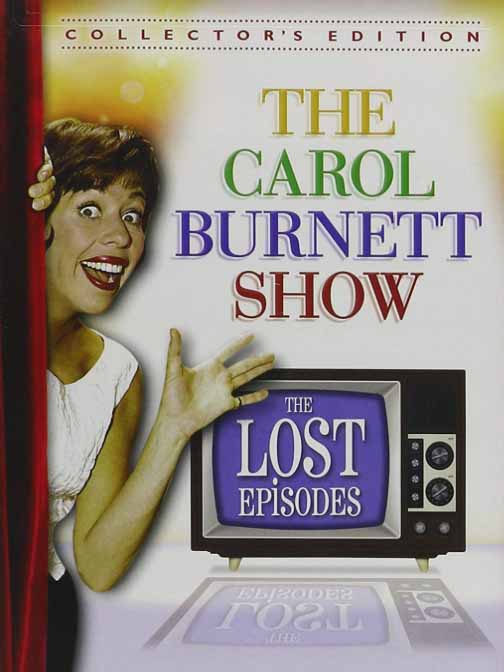 |
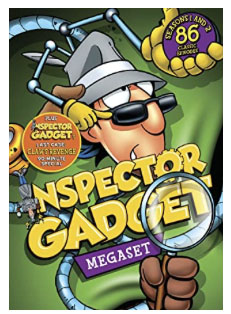 |
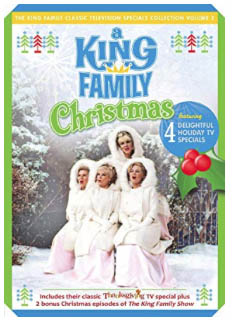 |
 |
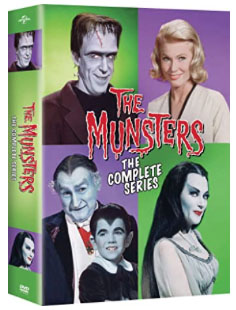 |
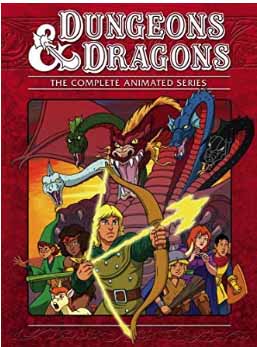 |
|
| TV
Shows on DVD/
/ / / / / / 2009
TV Show Reviews /
/ / / / / / Cartoons
on DVD/ / / /
/ / / Holiday
Specials on DVD
/ / / / / / Classic
Commercials |
|||||||
|
|||||||||||||||||
Save money! |